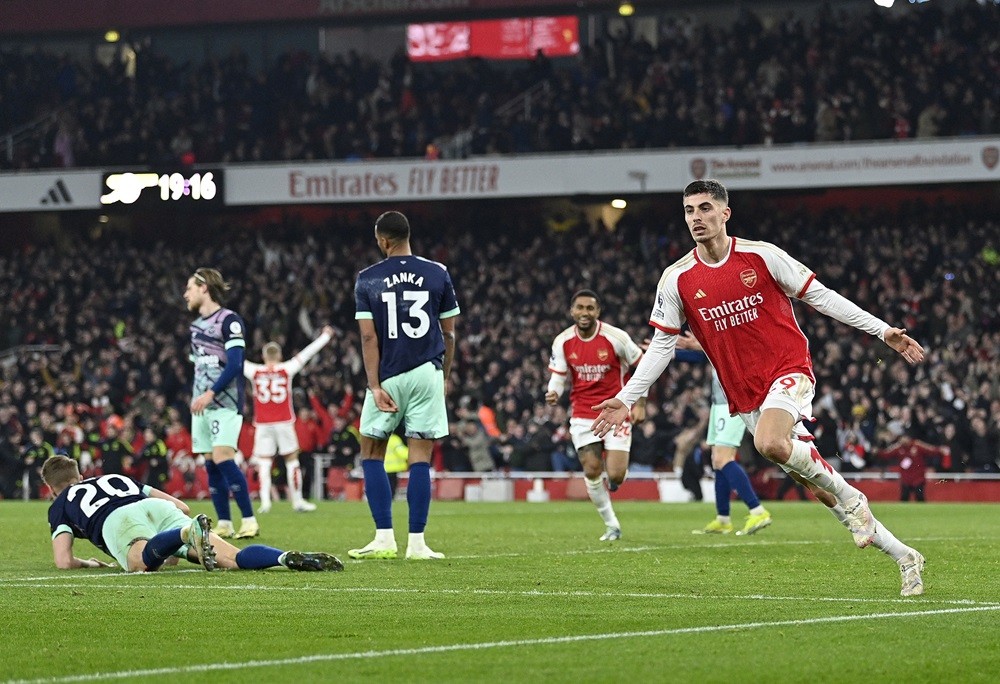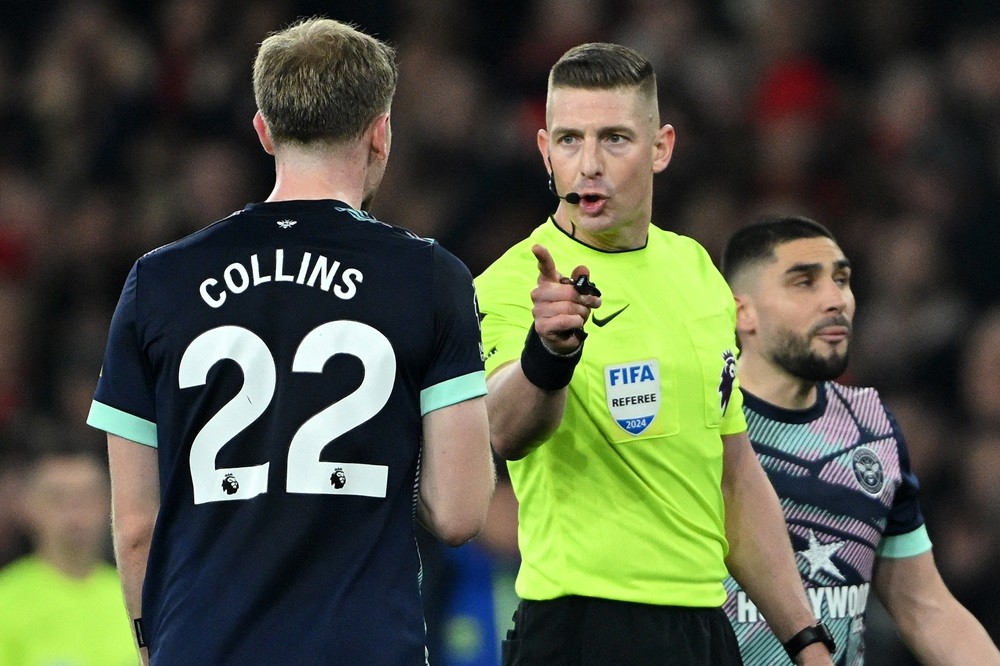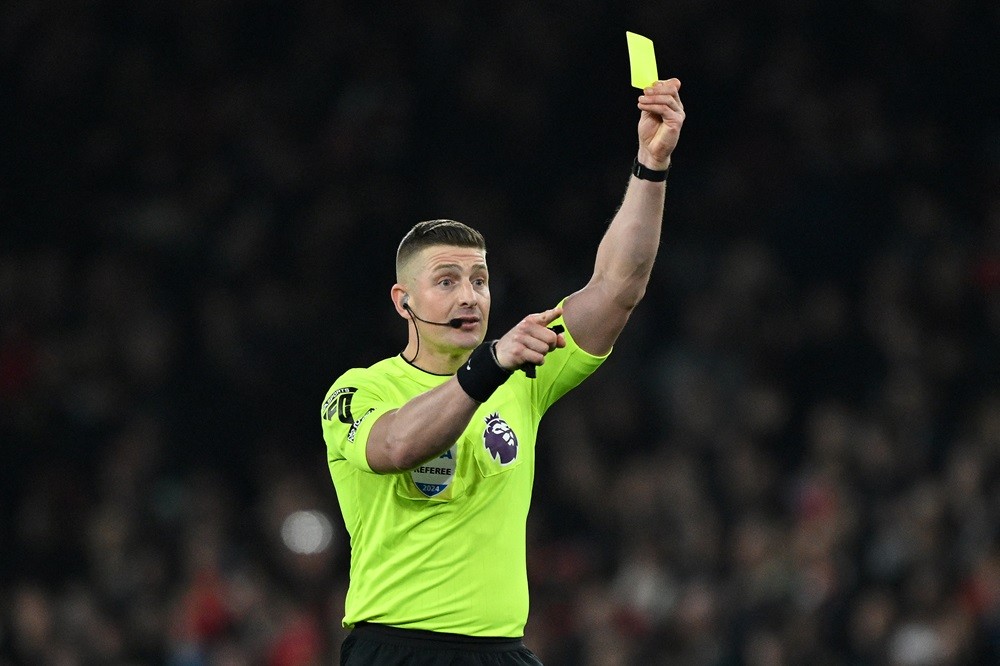Thomas Frank argued that Arsenal should have been reduced to 10 men on Saturday, but the rules suggest Brentford got away with one too.

Arsenal came out on top against Brentford on Saturday thanks to a Kai Havertz winner, but Thomas Frank argued that the German international should have been sent off earlier in the game.
Havertz had received an soft yellow card in the first half after catching an opponent whilst contesting an aerial duel, despite clearly focusing on the ball, which left him vulnerable to a sending-off in the second half.
The Arsenal man then went down under a challenge from Nathan Collins, with the replays showing contact, but not enough for referee Rob Jones to award a penalty.

Thomas Frank argued that the referee should have gone further than simply not awarding the penalty, claiming Havertz should have received a second yellow.
“I actually don’t think Havertz should be on the pitch when he scored,” Frank said.
“It was a clear dive. Maybe it is difficult for the referee but the linesman should have seen it.”
The Brentford boss is entitled to his opinion, but it would be a rare sight to see an attacker booked for an incident where there’s clear contact. Havertz invited the contact, perhaps, but he did get it.

There was one clear yellow card in that incident, but it wasn’t for Havertz, it was for Collins.
After Havertz went down, Collins turned to the referee and brandished an imaginary yellow card, waving his hand for a few seconds. As per the guidelines for this season, that’s meant to be an “automatic yellow card”.
The referee failed to award a yellow, which left Collins free to pick up another one later in the game. If he’d correctly received the first yellow, the second he did get would have seen him sent off.
Collins may not have received the second yellow if he hadn’t got the first, but he certainly would have been walking a tightrope he ended up not having to walk. Arsenal could have capitalised on that.

